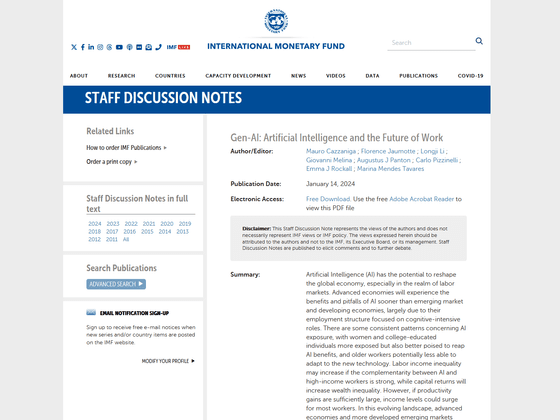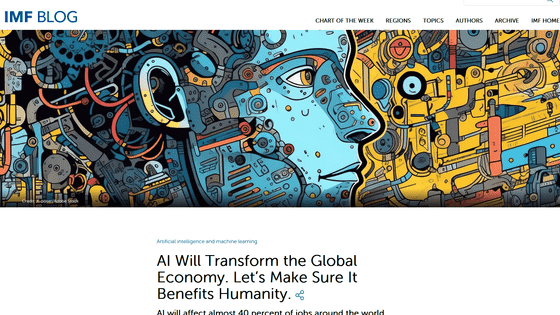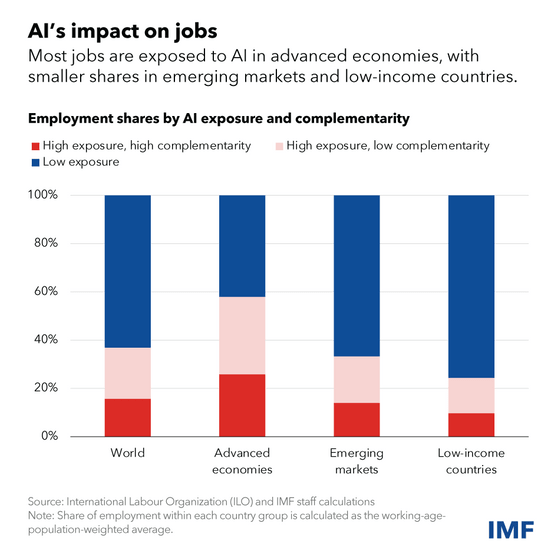IMF warns that 40% of jobs worldwide could be affected by AI

On January 14, 2024,
Gen-AI: Artificial Intelligence and the Future of Work
https://www.imf.org/en/Publications/Staff-Discussion-Notes/Issues/2024/01/14/Gen-AI-Artificial-Intelligence-and-the-Future-of-Work-542379

AI Will Transform the Global Economy. Let's Make Sure It Benefits Humanity.

AI to impact 60% of advanced economy jobs, says IMF chief
IMF warns AI to hit almost 40% of global employment, worsening inequality
https://www.cnbc.com/2024/01/15/imf-warns-ai-to-hit-almost-40percent-of-global-employment-worsen-inequality.html
The IMF announced that approximately 60% of jobs in developed countries could be affected by AI. According to the IMF, of the 60% of jobs affected, half will have a positive impact, such as 'AI increases productivity,' and the remaining half will see AI take over tasks currently performed by humans. This could lead to negative impacts such as a decrease in labor demand, lower wages, and loss of employment opportunities. “In the most extreme cases, some of these jobs could disappear,” said IMF Director -General Kristalina Georgieva .
Additionally, the IMF estimates that approximately 40% of jobs in emerging countries such as India and Brazil will be affected by AI. Furthermore, it is predicted to rise to 26% in developing countries such as Burundi and Sierra Leone. The graph below shows the possibility that employment will be affected by AI depending on the economic situation of the country, and it can be confirmed that the overall percentage including developed countries, emerging countries, and developing countries is about 40%. Masu.

“Many of these countries do not have the infrastructure or skilled workforce to reap the benefits of AI, increasing the risk that the technology will exacerbate inequality over time,” Georgieva said. I pointed it out. Furthermore, the IMF finds that while younger workers are using AI to increase productivity, middle-aged and older workers have difficulty keeping up with this technology, resulting in a decline in domestic income and wealth. He suggested the possibility of affecting inequality, the possibility of ``polarization within income groups,'' and the possibility of increasing social unrest.
The IMF said in its report: ``In this modern world where AI is on the rise, developed, emerging, and developing countries need to focus on upgrading their AI regulatory frameworks and helping them redistribute their workforce.'' 'Emerging and developing countries should also prioritize the development of digital infrastructure and skills.'

Georgieva urged policymakers around the world to 'establish comprehensive social safety nets and implement retraining programs for vulnerable workers to ensure that AI technologies do not further inflame social tensions.' It is important to take proactive measures such as providing 'At the IMF, we must focus on swift action and support to help developing countries reap the positive impact of AI.'
Related Posts:
in Note, Posted by log1r_ut







